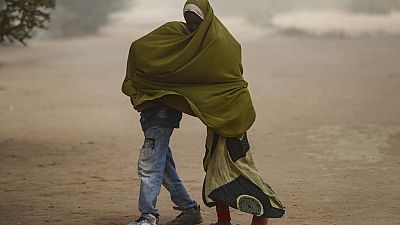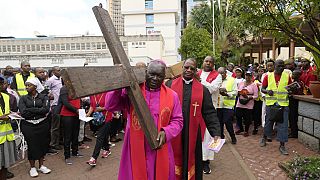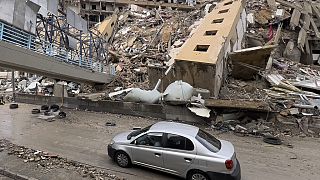United Nations
The United Nations General Assembly on Wednesday proclaimed 2025-2034 as the United Nations Decade to Combat Sand and Dust Storms, extreme weather events that are increasing and threatening health and economies from central Africa to northern China.
Ugandan Ambassador to the UN Godfrey Kwoba, who introduced the resolution on behalf of the Group of 77, a powerful UN grouping of 134 developing countries and China,** told the 193-member assembly that the initiative aimed to "stop and mitigate the negative effects of sand and dust storms" through "international and regional cooperation".
The assembly adopted the resolution by consensus and with a gavel from the assembly's president, Dennis Francis.
In a 2022 report, the United Nations Convention to Combat Desertification said sand and dust storms have "increased significantly in frequency in recent years. "
Storms can exacerbate respiratory diseases, kill crops and livestock, and increase desertification, although documentation of their impacts is limited.
The convention estimates that 2 trillion tonnes of sand and dust enter the atmosphere each year, mainly in drylands and sub-humid regions with little vegetation.
Most emissions result from natural conditions, but droughts and climate change are exacerbating the problem.
The report estimates that "at least 25% of global dust emissions come from human activities" such as unsustainable land management and water use.
As part of the 10-year initiative adopted on Wednesday, the General Assembly said the Food and Agriculture Organization (FAO) will promote mitigation practices in affected countries, including "sustainable land use management, agroforestry, windbreaks, afforestation/reforestation and land restoration programmes. "
The resolution also calls for global cooperation to strengthen early warning systems and share important meteorological information for forecasting sand dust storms.
The adoption of the resolution comes two days before the International Day to Combat Sand and Dust Storms, 12 July, which the General Assembly proclaimed last year and which will be observed for the first time.
The resolution called on countries to mark the day through educational and other activities aimed at raising public awareness of the importance of combating sand and dust storms for public health, improving land use, strengthening food security and livelihoods, and promoting " climate change resilience".














02:09
Russia vetoes UN resolution calling for immediate cease-fire in Sudan
01:07
Sudan keeps key aid crossing from Chad open to keep humanitarian aid flowing
01:58
Climate adaption: Unfulfilled pledges mean “lost lives and denied development” – UN chief
00:56
South Sudan's peace monitoring body meets to discuss election postponement
02:31
UN extends Western Sahara mission amidst abstentions and Algerian protest
01:34
Widespread condemnation of Israel's decision to ban UN relief agency